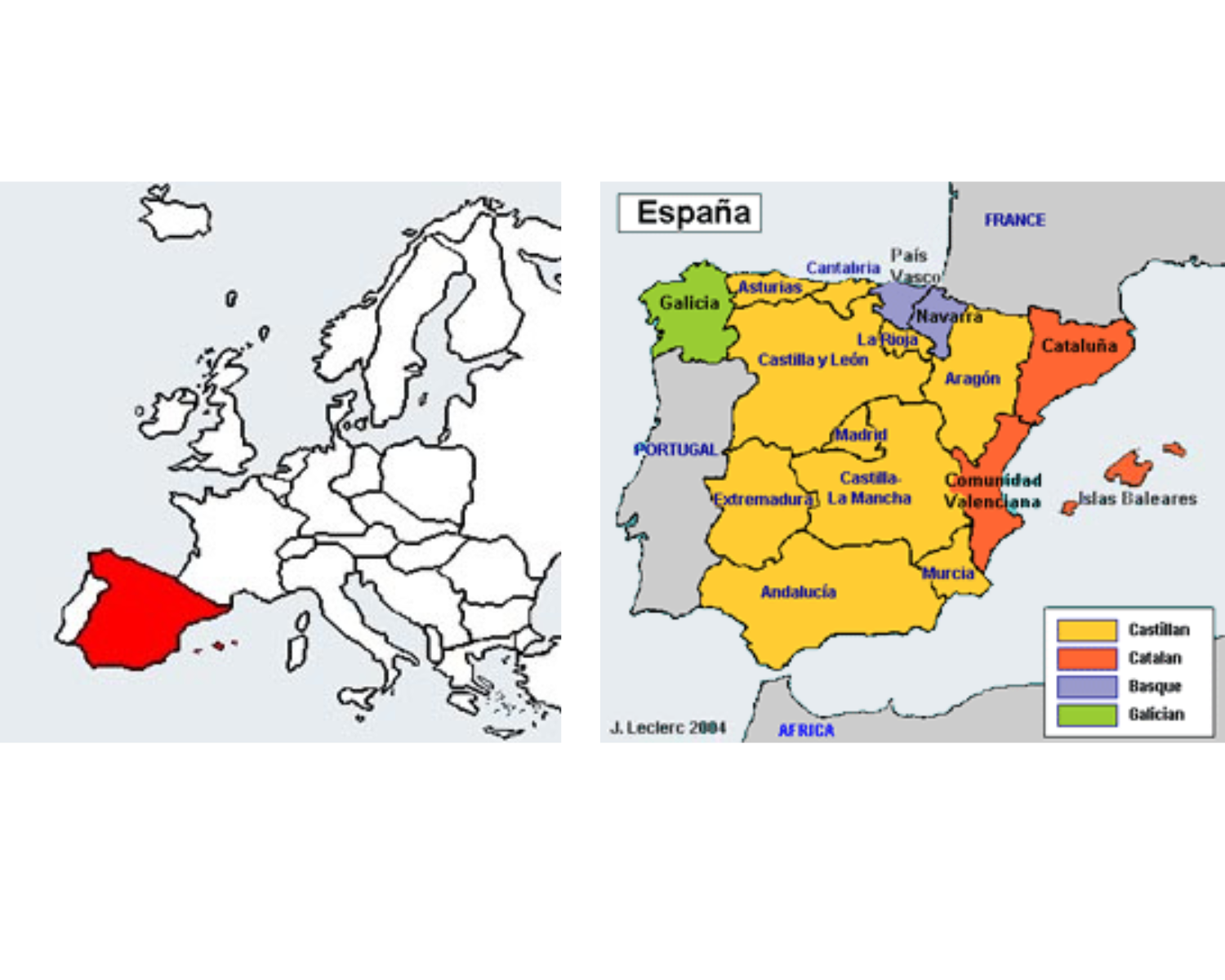Spanish Name |
French Name |
English Name |
|---|---|---|
| Pais vasco | Pays basque | Basque Country |
| Cataluña | Catalogne | Catalonia |
| Galicia | Galice | Galicia |
| Andalucía | Andalousie | Andalusia |
| Asturias | Asturies | Asturias |
| Cantabria | Cantabrie | Cantabria |
| La Rioja | La Rioja | La Rioja |
| Region de Murcia | Murcie | Murcia |
| Comunidad Valenciana | Pays valencien | Valencia |
| Aragón | Aragon | Aragon |
| Castilla-la-Mancha | Castille-La Manche | Castille and La Mancha |
| Islas Canarias | Îles Canaries | Canary Islands |
| Navarra | Navarre | Navarre |
| Extremadura | Extrémadure | Extremadura |
| Islas Baleares | Îles Baléares | Balearic Islands |
| Comunidad de Madrid | Madrid | Madrid |
| Comunidad de Castilla-León | Castille-et-Léon | Castile and Leon |
| Ciudades de Ceuta y Melilla | Ceuta et Melilla | Ceuta and Melilla |
The above map doesn't depict the Canary Islands or the "autonomous municipalities" of Ceuta and Melilla; it instead shows the "co-official" languages of Galician in Galicia, of Basque in both the Basque Country and Navarre, and of Catalonian in Catalonia, Valencia and the Balearic Islands. Castellano (the official name of the Spanish language in Spain) is an official language right across the country.
All of the autonomous communities have a sort of made-to-measure autonomy and an internal constitution designed by an assembly of locally elected officials (senators and members of parliament) but adopted by the Cortès Generales (Spanish parliament and senate). Autonomous communities have exclusive jurisdiction in many areas: local government institutions (parliament, administrations, governing bodies, schools, etc.), land use and environmental protection, roads and railways (which cross only one territory of an autonomous community), agriculture and forestry, hunting and fishing, economic development, health and social assistance, tourism and leisure, and police forces. Autonomous communities thus wield extensive powers through which they can govern themselves locally; municipalities, however, are not subject to autonomous- community governments and thus retain full autonomy in their own areas of jurisdiction.
As for the Spanish state, it has kept exclusive jurisdiction over the civil code, immigration, justice, international relations, currency, airports and nationally significant ports, the armed forces, weights and measures, customs and excise, etc. In this sense, competencies of the Spanish state resemble those of the Canadian government.

